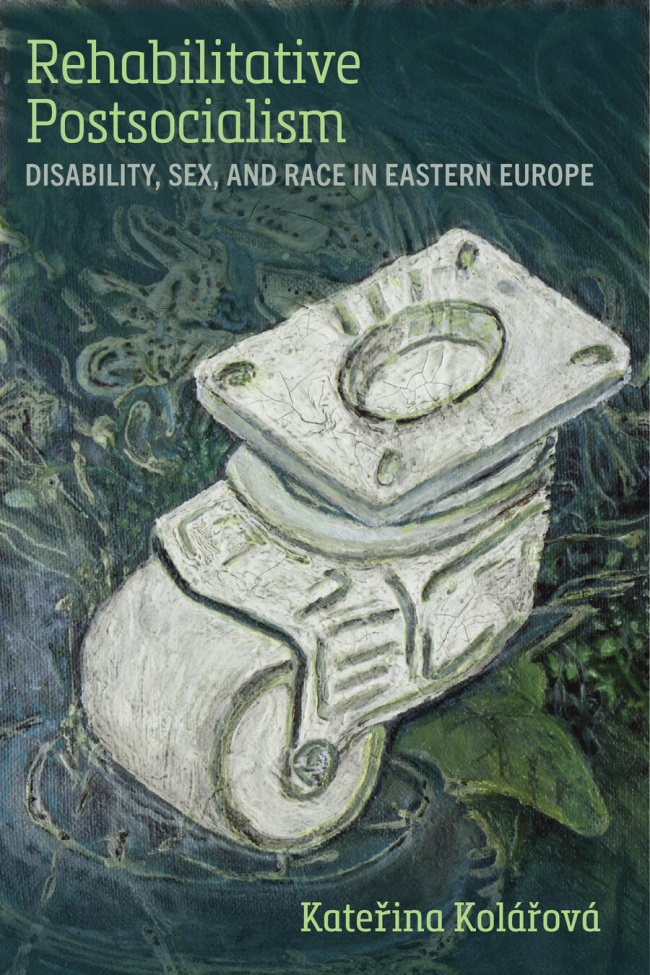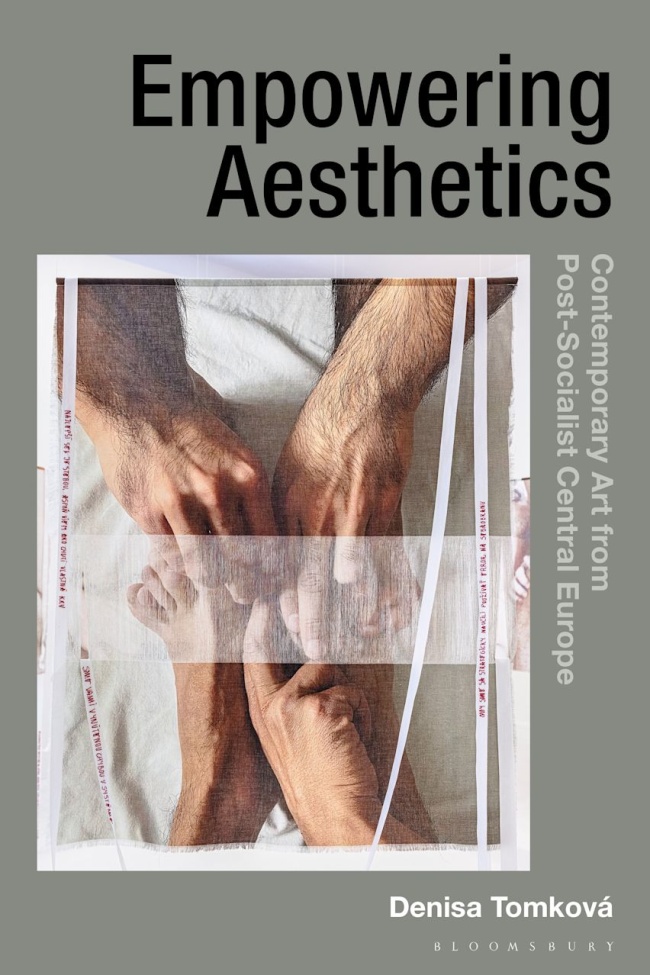FHS se prostřednictvím nových publikací dvou svých akademiček - Kateřiny Kolářové z Katedry aplikovaných sociálních věd a Denisy Tomkové z Katedry teorie umění a tvorby - otiskla do dvou světově významných nakladatelství. V University of Michigan Press v červnu vyjde Rehabilitative Postsocialism: Disability, Sex, and Race in Eastern Europe docentky Kolářové a už v dubnu Bloomsbury vydalo Empowering Aesthetics: Contemporary Art from Post-Socialist Central Europe doktorky Tomkové.
Takový publikační úspěch samozřejmě zaslouží i řádné uvedení. Srdečně proto zveme do dolní dvorany budovy FHS, kde autorky 22. května od 17:30 společně s literární teoretičkou Terezou Jiroutovou Kynčlovou a spisovatelkou Klárou Vlasákovou obě publikace představí. V panelové diskusi se odrazí od společného východiska - situace post-socialistických zemí -, a následně hledat spoje mezi estetikou a obecným ideologickým přístupem ke znevýhodnění, rase, třídě nebo genderu. Srdečně zveme.
Kateřina Kolářová’s Rehabilitative Postsocialism offers a timely interdisciplinary and intersectional analysis of how disability, race, class, and gender operate as ideological tools within the postsocialist Czech Republic (formerly Czechoslovakia). Kolářová presents postsocialism as an analytic that can and should be brought to bear to understand cultural politics, economic formations, and state politics through the present day.
Rehabilitative Postsocialism names disability, sexuality, and race as central yet invisible to negotiations of the postsocialist consensus. Drawing from a rich and varied archive, Rehabilitative Postsocialism maps the formation of new structures of inequalities and social imaginaries of wellness, merit, and justice in order to understand current articulations of global disenchantment with democracy, social justice, and solidarity. The book also makes clear that disability, race, and ethnicity continue to circulate in depictions of Eastern Europe as suspended in a chronic developmental “delay.” Rehabilitative Postsocialism both situates this positioning within its political and historical formation and offers the analytical tools to challenge its continued deployment.

The artistic strategies explored in this book are essential tools in fostering emancipatory consciousness in marginalized communities. Empowering Aesthetics weaves together case studies from the post-socialist Central European region (the Czech Republic, Hungary, Poland, and Slovakia) to show how art can provide critical support to gender, sexual and racialized groups. The empowering aesthetics employed by the artists in this book are not only urgent and critical, but also vitally personal, each chapter building a clear understanding of what social equality looks like in these specific political and geographic contexts. These practices are a response to the rise of nationalism, homophobia, transphobia, and xenophobia in the region.
Engaging with contemporary philosophy and feminist, queer and decolonial (art) theory (Sara Ahmed, Judith Butler, Angela Dimitrakaki, Boris Groys, Jack Halberstam, Grant Kester, Ewa Majewska, Paul B. Preciado, Legacy Russell, Madina Tlostanova, etc.), this book highlights a shift in the understanding of the artwork and aesthetic experience that is enduring rather than immediate, drawing attention to a given community. The projects discussed in this book are created with the artist and the wider community or family in mind and are created in intersubjective connection with others. This volume highlights that empowering aesthetics perform an important function in challenging these narratives while contributing to building an inclusive collective memory that emancipates systematically marginalized individuals and communities.

| Začátek akce | 22. května 2025 v 17:30 |
| Konec akce | 22. května 2025 v 19:00 |
| Druh akce | Společenská akce |
| Místo konání akce | FHS UK, dolní atrium |
| Cílová skupina | Akademická obec i veřejnost |
Univerzita Karlova
Fakulta humanitních studií
Pátkova 2137/5
182 00 Praha 8 - Libeň
Identifikátor datové schránky: piyj9b4
IČ: 00216208
DIČ: CZ00216208